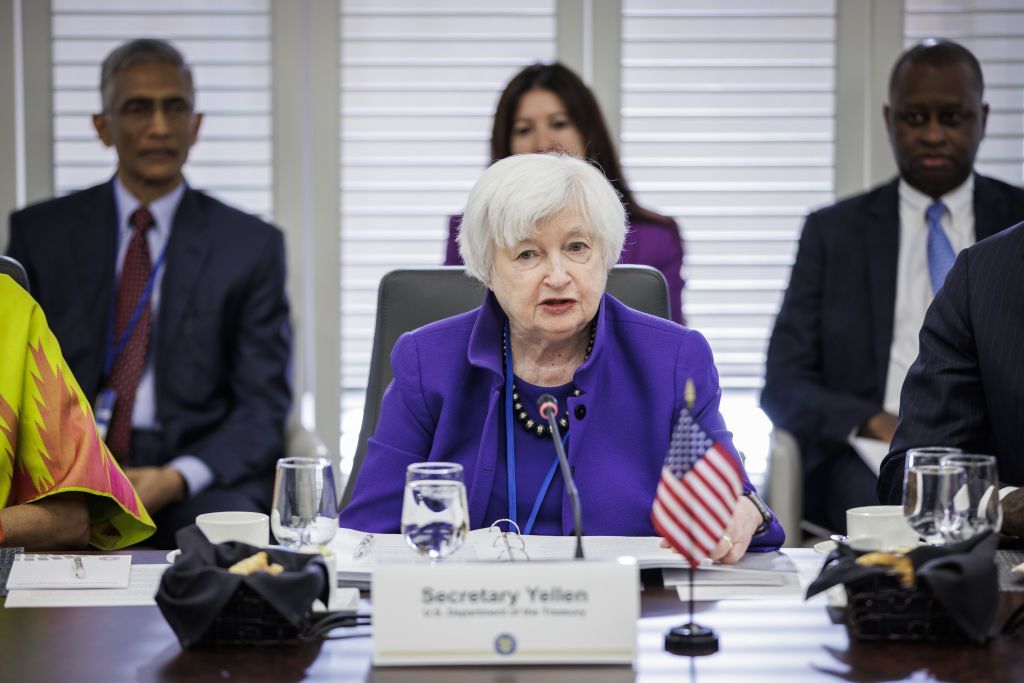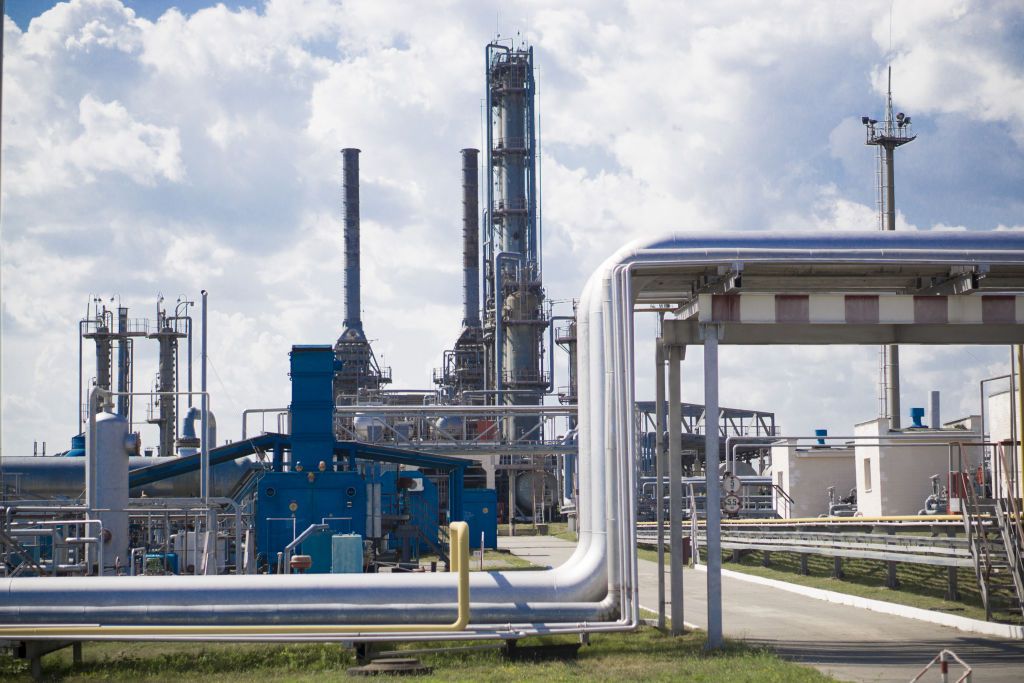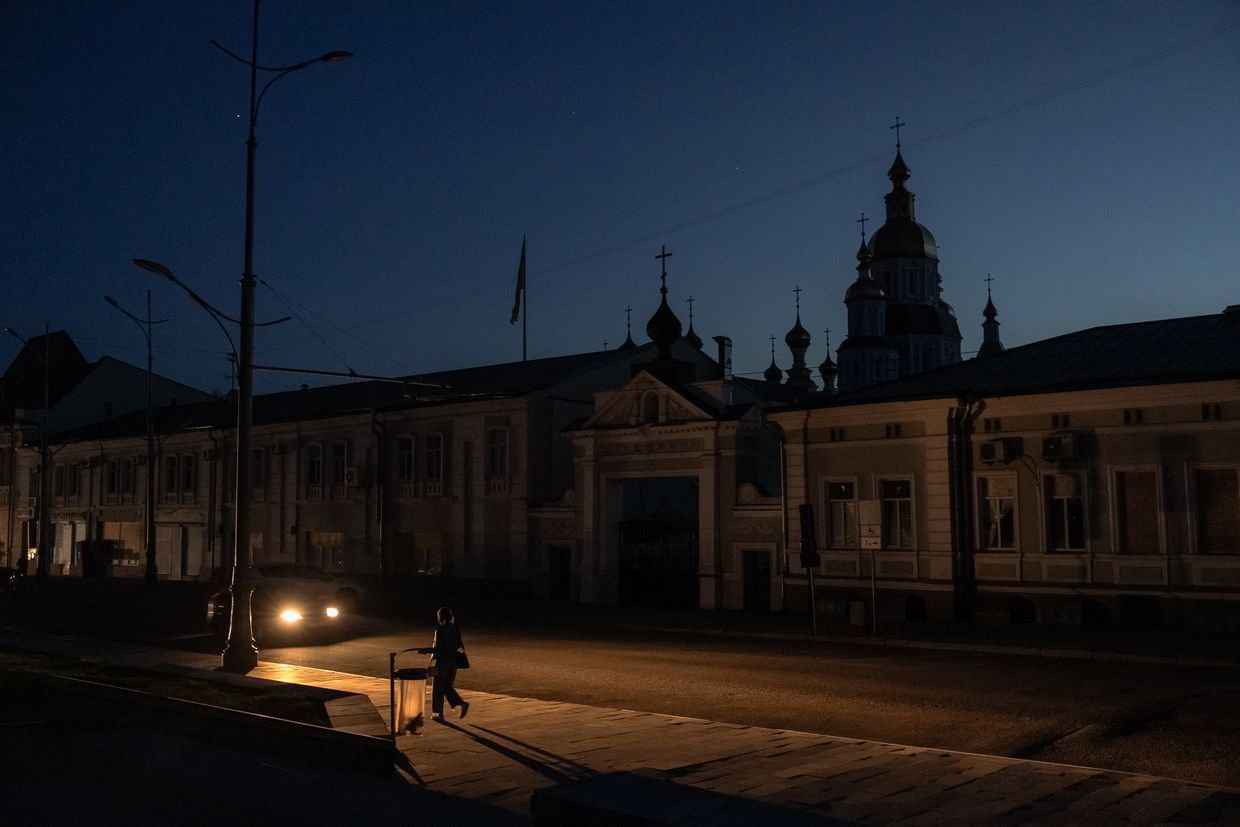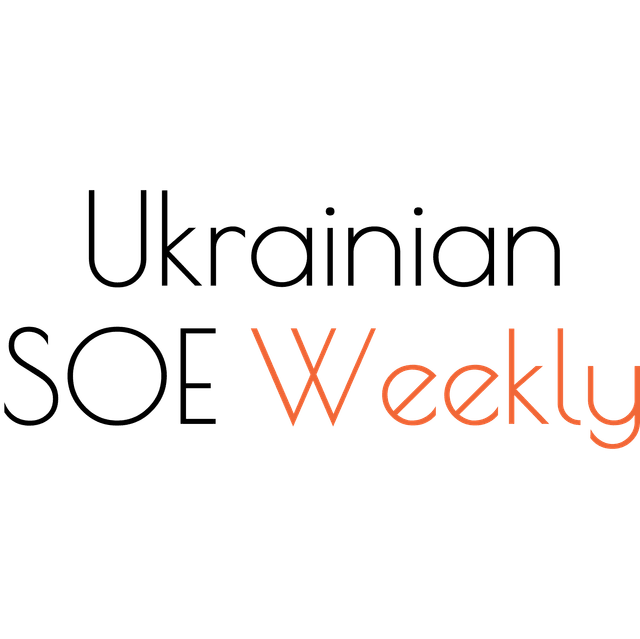Ukraine state-owned enterprises weekly — Issue 157

Editor’s Note: This is issue 157 of Ukrainian State-Owned Enterprises Weekly, covering events from Dec. 2-8, 2024. The Kyiv Independent is reposting it with permission.
Corporate governance of SOEs
Parliament appoints Naftogaz’s CEO Chernyshov as national unity minister; CFO Chumak takes over as acting CEO. On Dec. 3, the Verkhovna Rada, Ukraine's Parliament, appointed Oleksii Chernyshov as a deputy prime minister and national unity minister.
Chernyshov served as the governor of Kyiv Oblast from October 2019–March 2020 and as the communities and territorial development minister from March 2020–November 2022.
Since Nov. 4, 2022, Chernyshov was the CEO of Naftogaz, Ukraine's state-owned oil and gas giant.
Later on Dec. 3, the Cabinet of Ministers renamed the Reintegration of Temporarily Occupied Territories Ministry as the National Unity Ministry.
According to the Kyiv Independent, the new minister’s powers remain unclear. President Volodymyr Zelensky presented the ministry as part of Ukraine’s resilience plan, stating that it would focus on strengthening relations with Ukrainians living abroad, the media outlet reported.
According to Forbes Ukraine’s sources in parliament, the President’s Office, and Naftogaz, Chernyshov himself sought to join the government, but only if promoted to deputy prime minister. Two of the sources added that this could be linked to Chernyshov’s long-standing aspiration of becoming prime minister.
On Dec. 4, Naftogaz announced that its supervisory board had elected Roman Chumak, the company’s CFO, as Naftogaz’s acting CEO. This decision was supported by all seven members of the board, the company added.
According to Naftogaz, Chumak had been with the company for more than 19 years, holding roles ranging from chief specialist to department head. On 28 September 2021, he was appointed as a member of Naftogaz’s executive board. – SOE Weekly.]
The supervisory board has also decided to begin the selection process for a new CEO, aiming to complete the selection by the end of Q1 2025.
HACC extends pre-trial restrictions for Kobolyev again. On Dec. 4, the Specialized Prosecutor’s Office (SAPO) said that the High Anti-Corruption Court (HACC) had granted the SAPO’s motion and imposed pre-trial restrictions for former Naftogaz CEO Andriy Kobolyev.
According to SAPO, Kobolyev is obliged to appear at every request of the prosecutor and the court; report any change of place of residence; refrain from communicating with the persons specified in the court ruling; and hand over all passports to the State Migration Service.
SAPO recalled that on Nov. 1, it had filed a motion with HACC to reinstate the restrictions. However, the subsequent court hearings on Nov. 5 and 8, at which HACC was to consider the motion, were not held at the court’s initiative, and the procedural obligations expired on Nov. 12.
On Nov. 8 and 11, SAPO sent letters to HACC urging them to consider the request to reinstate the restrictions, but an additional meeting was never scheduled, SAPO added.
As we reported in Issue 71, on Jan. 19, 2023, the National Anti-Corruption Bureau of Ukraine (NABU) and SAPO charged Kobolyev with illegally awarding himself Hr 229 million, part of a bonus given to the Naftogaz team for their victory against Russia’s Gazprom in Stockholm’s court of arbitration in 2018. Hr 229 million was $8.8 million or €7.6 million at the time when bonuses were awarded.
On Aug. 8, 2023, HACC decided to extend the Hr 229 million bail ($6.1 million or €5.6 million at that time) for another two months and left Kobolyev’s procedural obligations, including pre-trial restrictions, unchanged. See SOE Weekly’s Issue 99 for details.
On Sept. 25, 2023, HACC removed the electronic ankle monitoring device from Kobolyev and halved his bail to the amount already paid, Hr 107 million ($2.9 million or €2.8 million). See Issue 104 for more detail.
As we reported in Issue 113, on Nov. 29, 2023, SAPO said that it filed abuse of office charges against Kobolyev. On Nov. 30, at the first preparatory hearing on Kobolyev’s charges, HACC granted the SAPO prosecutor’s motion and extended his procedural duties until Jan. 30, 2024.
On Dec. 14, 2023, following the results of the preparatory meeting, the panel of judges at HACC denied the defense’s request to return the indictment, scheduled a hearing on the merits, and commenced a hearing in the Kobolyev case. Since then, HACC has constantly extended the pre-trial restrictions for Kobolyev. See Case No. 991/10459/23.
As we wrote in Issue 154, HACC declined to extend pre-trial restrictions for Kobolyev.
For an extended background on the Kobolyev case, see SOE Weekly’s Issues 71, 72, 73, 77, 78, 79, 83, 84, 88, 91, 99, 104, 113, 136, and 154.
For a detailed analysis of this case from a corporate governance perspective, see series of columns by SOE Weekly team members Andriy Boytsun, Oleksandr Lysenko, and Dmytro Yablonovskyi: Are Kobolyev’s bonuses a threat to corporate governance reform? Part 1, Part 2, Part 3, Part 4, and Part 5.
Ukrposhta’s CEO Smelyansky to coordinate customs reform. On Dec. 3, the Cabinet of Ministers instituted the position of government commissioner for customs reform, to be held by Ukrposhta’s CEO Ihor Smelyansky on a pro bono basis. The Cabinet has also set up a coordination working group.
Prime Minister Denys Shmyhal said that the group, headed by the commissioner, would be tasked with synchronizing with the EU (apparently, aligning Ukrainian customs rules with EU rules), modernizing infrastructure, implementing a risk-based system, digitalization, and more.
Ekonomichna Pravda (EP) noted that some of the above commissioner’s responsibilities essentially overlap with the powers of the Finance Ministry, as set out in the 2014 regulation.
Commenting on his appointment as government commissioner, Smelyansky wrote on his Facebook page that he had no plans to resign as Ukrposhta’s CEO.
The main goal of the project is to develop and propose, together with the Digital Transformation Ministry, Economy Ministry, Finance Ministry, and other stakeholders, a completely new customs model within the next three to four months. In that model, the vast majority of processes would be based on digitalization, data analysis, and risk models, with minimal or no human factor, he explained.
State Land Bank gets a supervisory board, the SPFU’s press office reported on Dec. 5. The main task of the board is to oversee the activities of State Land Bank LLC and ensure compliance of its operations with the law and the company’s charter, the SPFU explained.
According to the SPFU, the powers of the supervisory board include:
- Approving of the strategic development plan, financial pan, and investment plans;
- Overseeing risk management;
- Implementing the anti-corruption policy;
- Developing the corporate social responsibility policy; and
- Developing the sustainable development policy.
The board members are:
- Bohdan Danylyshyn (chairperson). Danylyshyn chaired the board of the National Bank of Ukraine (NBU) in 2016-2023 and was economy minister in 2007-2010. He is a doctor of economics, professor, and member of the National Academy of Sciences of Ukraine.
- Igor Potiomka, director of Avangard-Vilarti LLC, through which the SPFU owns 66.65% of Investment Union Lybid LLC, which owns Kyiv’s Ocean Plaza shopping mall.
As we wrote in Issue 106, the SPFU wants to sell the state’s 66.65% stake in Ocean Plaza, previously owned by sanctioned Russian oligarchs Arkady and Igor Rotenberg.
As we wrote in April 2024 (Issue 127), the starting price was set at Hr 1.65 billion (39.2 million euros at the exchange rate at that time).
See Issues 106, 109, 113, and 127 for more detail on Ocean Plaza’s privatization process.
- Oleksandr Vasylchenko, head of the SPFU’s Department for Agricultural Enterprises.
- Stanislav Banchuk, Ukrspyrt’s acting CEO since May 3. See Issue 131 for more detail.
The status of the members of Land Bank’s board, such as independent members or shareholder representatives, if any, was not reported.
According to the SPFU, the board held its first meeting at the end of November 2024, where Danylyshyn was elected as the chair. In addition, the Audit Committee was established.
As we reported in June 2023, the SPFU was working out plans to centralize state property management, which included setting up a land bank (see Issue 93).
We then wrote that the Cabinet transferred 25 SOEs, previously managed by the National Academy of Agrarian Sciences, to the SPFU on Aug. 11, 2023 (see Issue 100).
In June 2024, the Cabinet took away 2,764 agricultural land plots with a total area of more than 104,000 hectares from SOEs. The SPFU-managed Agrarian Investment Fund was given control. The SPFU then announced that preparations for the Land Bank were complete. The next step was to corporatize the Agrarian Investment Fund, so it could act as a land auction operator (see Issue 136).
In August, the SPFU completed the corporatization of the Agrarian Investment Fund, creating State Land Bank LLC on its basis (see Issue 144).
Shortly after that, the SPFU-managed Land Bank announced the first 16 auctions on Prozorro.Sale for the lease of state agricultural land (see Issue 145). Later, we reported on the results of these 16 auctions (see Issue 150).
Starting from July 1, 2021, Ukrainian citizens can legally buy and sell agricultural land. However, the sale and purchase of state-owned and communal agricultural land remain banned.
Privatization
SPFU to put Ukrbud up for privatization for Hr 262.6 million ($6.2 million). On Dec. 6 2024, the Auction Commission of the State Property Fund of Ukraine (SPFU) set the starting price for the sale of Ukrbud Construction Company at Hr 262.6 million ($6.2 million).
The SPFU also defined the terms of privatization. The potential buyer must:
- maintain the company’s core business;
- pay off wage and budget arrears within six months (the amount of such arrears was not reported.)
- pay off overdue debts, except debts to sanctioned creditors (the amount of such debts was not reported)
- ensure social guarantees for employees and prevent dismissals within six months;
- comply with environmental laws and maintain protective structures;
- conclude a new collective bargaining agreement after the current one expires; and
- transfer dividends to the state budget for 2024-2025.
Ukrbud Construction Company designs industrial and civil facilities, carries out construction and installation works, and trains and retrains workers for the needs of the construction industry. The company comprises 10 subsidiaries, including design institutes and training centers, the SPFU added.
According to Forbes Ukraine, the Cabinet of Ministers launched the state-owned construction company Ukrbud in 2004.
As of September 2024, Ukrbud consisted of 10 separate structural divisions and 11 subsidiaries with a book value of over Hr 265 million ($6.3 million). Of these, five companies are engaged in training and retraining of personnel in the construction industry, and six are engaged in design, the media said.
Ukrbud owns 25 real estate properties in 15 cities, including Kyiv, Dnipro, Zhytomyr, Ivano-Frankivsk, and Cherkasy. In addition, the company owns 16 office premises in Kyiv and Dnipro, Forbes Ukraine noted.
According to YouControl, In 2023, Ukrbud’s revenue was Hr 105.2 million (2.6 million euros at the average exchange rate at the time). The loss for 2023 was Hr 3 million (75,000 euros). For the first half of 2024, it was Hr 5.7 million (132,500 euros).
Former Party of Regions MP Prodyvus turns out to be the buyer of Bilhorod-Dnistrovskyi port, the SPFU checks the origin of funds. On Dec. 5, Top Offer LLC, the only bidder and, accordingly, the winner of the Bilhorod-Dnistrovskyi privatization auction, fully paid Hr 90 million ($2.1 million) for the port itself and Hr 18 million ($431,000) in VAT.
According to Forbes Ukraine and liga.net, at the time of the auction, the owner of Top Offer LLC was Yevhen Boguslavskyi, but on Nov. 28, the company’s beneficial owner changed to a businessman, former MP from the pro-Kremlin Party of Regions (2012-2014) and former President of the Ukrainian Boxing Federation, Volodymyr Prodyvus.
According to Chesno, Prodyvus started his political career in 2012, running for the Verkhovna Rada as a self-nominated candidate, and joined the Party of Regions in December 2012. He was an MP until February 2014, voting for the dictatorial laws of Jan. 16, 2014. He is also one of the owners of Mostobud, a bridge construction company.
“Currently, the SPFU is conducting an audit to ensure compliance with the privatization law: checking the entity and the origin of the funds,” the SPFU’s spokesman Maksym Ravchak explained. It is possible that the deal could eventually be cancelled, Forbes Ukraine added.
As we wrote in November 2024 (Issue 154), Bilhorod-Dnistrovskyi was sold from the thirteenth attempt. The starting price was halved to Hr 89 million ($2.1 million), and only one bidder, Top Offer LLC, took part in the auction. The company offered Hr 90 million ($2.16 million) for the asset.
According to YouControl, Top Offer LLC was registered in late 2023 in Kyiv. Its primary registered line of business is the lease and operation of owned or leased real estate. The company was then owned by Yevhen Boguslavskyi.
Back then, Boguslavskyi said that he could not disclose the details of the privatization due to his NDA with the investor. He said that the name of the seaport’s new owner may become known within a month. Boguslavsky had also refused to discuss the origin of the money for the purchase.
For more on the history of Bilhorod-Dnistrovskyi’s privatization, see SOE Weekly Issues 74, 78, 79, 84, 85, 87, 93, 99, 100, 144, 147, 148, 152, and 154.
Ukrainian SOE Weekly is an independent weekly digest based on a compilation of the most important news related to state-owned enterprises (SOEs) and state-owned banks in Ukraine.
The contents of this publication are the sole responsibility of the editorial team of the Ukrainian SOE Weekly.
The SOE Weekly is produced and financed by Andriy Boytsun. Communications support is provided and financed by CFC Big Ideas. The SOE Weekly is not financed or influenced by any external party.
Editorial team: Andriy Boytsun, Oleksiy Pavlysh, Dmytro Yablonovskyi, and Oleksandr Lysenko.
















